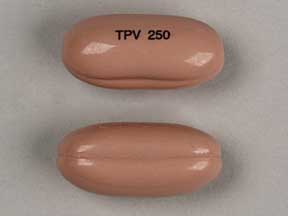
Aptivus Coupons & Savings Card – Discount Prices from $2128.22
My prescription
Edit
250MG, Aptivus (120 Capsules)
Select pharmacy

CVS
$2128.22
COUPON PRICE
Albertsons
$2164.22
COUPON PRICE
Walgreens
$2197.56
COUPON PRICE
Walmart
$2226.35
COUPON PRICEAptivus savings card
Show this card to your pharmacist
CVS
$2128.22
BIN
ID
PCN
GRP
015995
LHKPW639805
GDC
DR33
Powered by
Related protease inhibitors prescriptions
More prescriptions for hiv treatment
Related protease inhibitors prescriptions
More prescriptions for hiv treatment
Price history for Aptivus
120 Capsules, 250MG
Average retail price for Aptivus
Average SaveHealth price for Aptivus
Our price history data is based on aggregated prescription data collected from participating pharmacies in America. Our prescription data updates daily to reflect the latest price changes. If you notice a missing data point, it means there wasn't sufficient data available to generate a monetary value for that date.
*Retail prices are based on pharmacy claims data, and may not be accurate when we don't have enough claims.
Aptivus dosage forms
Dosage Quantity Price from Per unit 250MG 120 Capsules $2184.24 $18.20
| Dosage | Quantity | Price from | Per unit |
|---|---|---|---|
| 250MG | 120 Capsules | $2184.24 | $18.20 |
What is Aptivus used for?
Aptivus is used in combination with other antiretroviral medications to treat HIV-1 infection in patients who have been previously treated with other HIV medications. It is typically prescribed for patients who have developed resistance to other protease inhibitors.
What is Aptivus plus syrup used for?
Aptivus plus syrup is used in combination with other antiretroviral medications to treat HIV-1 infection in patients. It helps to decrease the amount of HIV in the body, which improves the immune system function and reduces the risk of developing HIV-related complications.
What is the brand name for tipranavir?
The brand name for tipranavir is Aptivus.
What is the generic name for Aptivus?
The generic name for Aptivus is tipranavir.
